“Guilt was not merely a weakness, it was misleading, casting one’s entire life into doubt.”
– From Making Things Better by Anita Brookner.
Guilt:
Feeling Guilty? You are certainly not alone. Feeling Guilty is like suffering in the tight grasp of a python. Exaggerated guilt is a problem for a majority of good people.
Feeling Guilty makes life so much more difficult. Guilt triggers depression, anxiety & low self esteem. The religious culture of both Catholics & Jews makes guilt more difficult to bear. The chief asset of being Protestant is that you are likely to be less guilty.
Feeling guilty pinches us to do better next time which is totally reasonable.
Feeling guilty & simply drowning in it by feeling bad about yourself is totally unreasonable.
Think through your guilty feelings and make the distinction: what’s unreasonable & what’s reasonable?
When someone uses a guilt trip they are manipulating you to do what they want. One example would be a mom who just had a heart attack demands you care for her at home when medically that makes no sense at all. They are invested in making you feel guilty to do what they want.
Manipulation is easy because people who feel guilty are overdosed on loyalty. So a first step to not being manipulated would be to recognize misplaced loyalty. Guilt is often counterproductive because the people who suffer the most, often have the kindest hearts. (A great movie that demonstrates this is Goodbye Lenin.)
What is guilt? One definition is that often feeling guilty is really about deeply buried resentments. In the example cited above underneath your guilty feelings are resentments that your mom simply asks too much of you. It is unreasonable and you might secretly wonder when is enough, enough???
Many times unreasonable guilt is really all about resentments that you are pretending don’t exist. So ask yourself, are there any resentments underneath your guilty feelings?
Feeling unreasonably guilty often means you haven’t accepted your own humanity. We all make mistakes. We stop making mistakes on the day that we die. Our dark side is part of our nature & we only get to make it smaller every decade, though it will never go away.
The burden of feeling guilty too much, means forgiving ourselves really matters. Ruining our lives by excessively feeling guilty is only a breeding ground for insidious doubt that can ruin a lifetime. What good is that?
Speaking up and being more authentic is helpful to diffuse feeling guilty. The more you swallow from others and suffer in silence, the more you add to your depression. It is cultural to define speaking up as being mean or hurting someone’s feelings. Think of speaking up as an opportunity to teach someone else what is reasonable or unreasonable from your point of view.
Movies that Explore Guilty Feelings
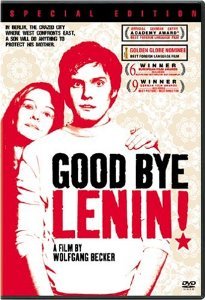
Goodbye Lenin (2004)
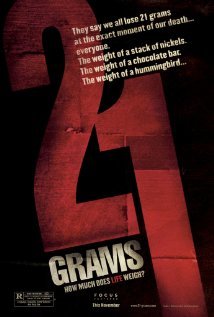 21 Grams (2003) A terrible accident brings together three people who deal with harsh truths, one of which is guilt.
21 Grams (2003) A terrible accident brings together three people who deal with harsh truths, one of which is guilt.
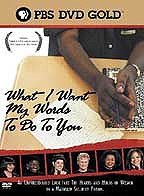 What I Want My Words to Do to You: Voices from Inside a Women’s Maximum Security Prison (2003) Follow this link to read review on my blog.
What I Want My Words to Do to You: Voices from Inside a Women’s Maximum Security Prison (2003) Follow this link to read review on my blog.
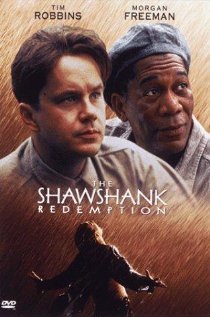 Shawshank Redemption (1994) Rated 1st of the top 250 movies at imdb..
Shawshank Redemption (1994) Rated 1st of the top 250 movies at imdb..
Homework
Guilt Exercise
(downloadable PDF form)
Write in one column what you feel guilty about, as many examples as you can think of all at once. Then look through them and see if there is a legitimate reasonable obligation to address or is there an unspoken resentment being hoarded about what is unreasonable?
Books that can Help Feeling Guilty
When I Say No, I Feel Guilty
Escaping Toxic Guilt
Emotional Pain:
“It feels just like walking on broken glass” -lyrics by Annie Lennox from the song Walking on Broken Glass
Profound pain can never be erased, and it always gets smaller over time. Learning to make pain bearable is an important part of life. A majority of Chinese movies attend to the telling of very painful stories (see the Chinese Section under Movies on web site).
It is paradoxical but true that if you honor and respect your pain it will take up less space in your heart.
It is important to share pain, to have it witnessed. Too often in life we are the Tin Man in the Wizard of Oz with our jaws rusted shut. The secret to life is middle ground: sharing but not oozing your pain everywhere like those who are bitter or resentful. Choicefully sharing can make a difference. To be known truly is one of life’s joys and risks.
Without a doubt, unspoken pain creates cracks and crevices in the soul. Consider writing a letter to God, to yourself, or to someone who has hurt you, not to send but to allow the pain to take up less space in your soul.
There is another kind of pain that Iris Murdoch writes about in The Good Apprentice. Therapy is often about coping with our broken self-delusions. Murdoch writes:
 “Your picture of yourself, your self-illusion is in process of being broken. This places you in an unusual position, very close to the truth, and that proximity is part of your pain…you hate your damaged self and feel you cannot live with it, yet you desperately cherish it at the same time. You describe your grief as a system. Indeed it is, a defensive system of mutually supporting falsehoods instinctively produced to defend your old egoistic self-image which you cannot bear to lose, you cannot bear its death which seems so like your own. Your endless talk of dying is a substitute for the real needful death, the death of your illusions…you say you live in pain. Let it be the death of the old false self, and the life-movement of the new real truthful self.”
“Your picture of yourself, your self-illusion is in process of being broken. This places you in an unusual position, very close to the truth, and that proximity is part of your pain…you hate your damaged self and feel you cannot live with it, yet you desperately cherish it at the same time. You describe your grief as a system. Indeed it is, a defensive system of mutually supporting falsehoods instinctively produced to defend your old egoistic self-image which you cannot bear to lose, you cannot bear its death which seems so like your own. Your endless talk of dying is a substitute for the real needful death, the death of your illusions…you say you live in pain. Let it be the death of the old false self, and the life-movement of the new real truthful self.”
This is said by a character who is a psychiatrist to young Edward, who has had a part in the death of his roommate. Great tragedy does open up possibilities. As an aside: The Chinese symbol for crisis also has the dual meaning of opportunity.
What it Means to be Human
One of my favorite passages on how impossible it is to understand someone else and yet we are compelled to keep on trying anyway;
“You fight your superficiality, your shallowness, so as to try to come at people without unreal expectations, without an overload of bias or hope or arrogance, as untanklike as you can be, sans cannon and machine guns and steel plating half a foot thick; you come at them unmenacingly on your own ten toes instead of tearing up the turf with your caterpillar treads, take them on with an open mind, as equals, man to man, as we used to say, and yet you never fail to get them wrong. You might as well have the brain of a tank. You get them wrong before you meet them, while you’re anticipating meeting them; you get them wrong while you’re with them; and then you go home to tell somebody else about the meeting and you get them all wrong again. Since the same generally goes for them with you, the whole thing is really a dazzling illusion empty of all perception, an astonishing farce of misperception. And yet what are we to do about this terribly significant business of other people, which gets bled of the significance we think it has and takes on instead a significance we think it has and takes on instead a significance that is so ludicrous, so ill-equipped are we all to envision one another’s interior workings and invisible aims? Is everyone to go off and lock the door and sit secluded like the lonely writers do, in a soundproof cell, summoning people out of words and then proposing that these word people are closer to the real thing than the real people that we mangle with our ignorance every day? The fact remains that getting people right is not what living is all about anyway. It’s getting them wrong that is living, getting them wrong and wrong and wrong and then, on careful reconsideration, getting them wrong again. That’s how we know we’re alive: we’re wrong. Maybe the best thing would be to forget being right or wrong about people and just go along for the ride. But if you can do that – well, lucky you.”
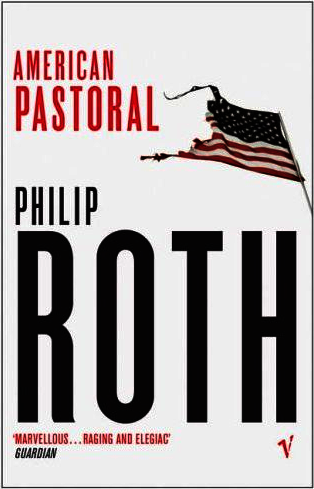 – from the book American Pastoral
– from the book American Pastoral
by Phillip Roth


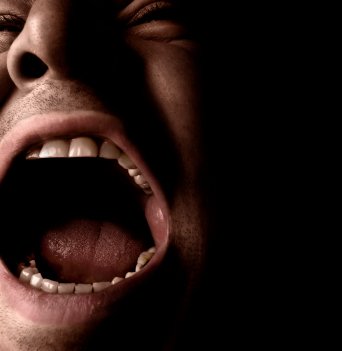











Amazing write up